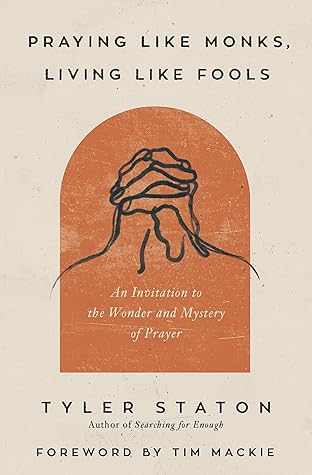More on this book
Community
Kindle Notes & Highlights
by
Tyler Staton
Read between
July 4 - July 22, 2023
it is by faithful, laboring prayer that God draws the lost to himself and reforms the passions of the praying person.
The pattern that emerges from David’s tabernacle is this: prioritize presence in the church, and you get the kingdom in the city.
Our praying lives are incomplete without an understanding of the present praying life of Christ because prayer doesn’t begin with us; it begins with Jesus. His prayers always precede our prayers.
Jesus is praying for you and me. He is the bridge between the Father’s heavenly resources and our earthly lives. Let me be clear. The Father does not require more convincing to embrace us as his own, and the Son doesn’t care for us more deeply than the Father does. This is reflective of the triune mystery of a three-in-one, communal God. It is the Son’s great passion to see his atoning work become our current experience and the Father’s deep joy to say an unhesitating yes to the Son’s intercession.
The end of the story is written. We are justified by what he’s done (past work) and glorified by what he will do (future work).
Intercession is the present action of Jesus that pulls at this story from both ends—the salvation work accomplished in the past and the glory that awaits us in the future. Intercession, stated as simply as possible, brings forth the image of Jesus praying for us, individually by name. And as he does, he wedges us tightly between forgiveness and glory, enabling a deep inner rest sheltered by security, hope, and delight.
Justification is the knowledge of Christ’s heart; intercession is the application of that very heart. It’s the experience.
Intercession means Jesus is not cool and reserved. He’s passionate, interested, invested, engaged. Even now, as your eyes scan over these words, Jesus is applying the finished work of the cross to you. He’s lavishing you in the Father’s love, assuring you of your forgiveness, binding up your wounds, and breathing courage into your lungs. Intercession means all that.
The point made in Hebrews is that Jesus doesn’t just make a way for you and me to hobble through life and make it to the end in one piece; he makes a way for us to stand up straight, run, jump, dance, and laugh in the face of death! That—the today experience of the cosmic reality won for us in his life—is his heavenly intercession, the prayer of Jesus.
Knowledge is purely intellectual; belief is gut-level conviction. Knowledge is the language of the head; belief is the language of the heart. But that’s not the Hebrew understanding of knowledge.
Spiritual knowledge has to be inhabited, experienced, lived.
Prayer does not emerge from knowing our needs but from knowing God’s heart.
The reality of his atoning work is constant, but the experience of that very work comes in fits and starts, breakthroughs and droughts, moments of divine assurance followed by bouts of human insecurity. And because of that, Jesus is praying for you right now. One of my most frequent prayers is to simply try to get in touch with his prayers for me. I usually phrase it as a question: “Jesus if you were to walk in the room right now, what would you want to say to me?” Ask him. Be still and wait. In my experience, he’s eager to share his heart.


